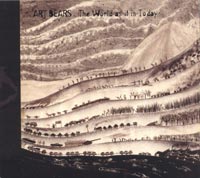
In Stock
Quantity in Basket: None
Log In to use our Wish List
Shipping Weight: 5.00 units
EU & UK Customers:
Discogs.com can handle your VAT payments
So please order through Discogs
Sample The Album:
Fred Frith-guitars, violin, keyboards
Chris Cutler-drums, percussion
Dagmar Krause-vocal
Click an artist name above to see in-stock items for that artist.
UPC: 752725021029
Label: Recommended Records
Catalog ID: ReRAB3
Squidco Product Code: 4772
Format: CD
Condition: New
Released: 2004
Country: Great Britain
Packaging: Jewel Tray
1980 release
Artist Biographies
• Show Bio for Fred Frith "Though the point of reference for many remains the iconic band Henry Cow, which he co-founded in 1968 and which broke up more than 30 years ago, Fred Frith has never really stood still for an instant. In bands such as Art Bears, Massacre, Skeleton Crew, Keep the Dog, Tense Serenity, the Fred Frith Guitar Quartet, Eye to Ear, and most recently Cosa Brava, he has always held true to his roots in rock and folk music, while exploring influences that range from the literary works of Eduardo Galeano to the art installations of Cornelia Parker. The release of the seminal Guitar Solos in 1974 enabled him to simultaneously carve out a place for himself in the international improvised music scene, not only as an acclaimed solo performer but in the company of artists as diverse as Han Bennink, Chris Cutler, Jean-Pierre Drouet, Evelyn Glennie, Ikue Mori, Louis Sclavis, Stevie Wishart, Wu Fei, Camel Zekri, John Zorn, and scores of others. He has also developed a personal compositional language in works written for Arditti Quartet, Asko Ensemble, Bang on a Can All-Stars, Ensemble Modern, Concerto Köln, and ROVA Sax Quartet, for example. Fred has been active as a composer for dance since the early 1980s, working with choreographers Bebe Miller, François Verret, and especially long-time collaborator and friend Amanda Miller, with whom he has created a compelling body of work over the last twenty years. His film soundtracks (for award-winning films like Thomas Riedelsheimer's Rivers and Tides and Touch the Sound, Peter Mettler's Gambling, Gods, and LSD, and Deborah Kaufman and Alan Snitow's Thirst, to name a few) won him a lifetime achievement award from Prague's "Music on Film, Film on Music" Festival (MOFFOM) in 2007. The following year he received Italy's Demetrio Stratos Prize (previously given to Diamanda Galas and Meredith Monk) for his life's work in experimental music, and in 2010 was awarded an honorary doctorate from the University of Huddersfield in his home county of Yorkshire. Fred currently teaches in the Music Department at Mills College in Oakland, California (renowned for over fifty years as the epicenter of the American experimental tradition), and in the Musik Akademie in Basel, Switzerland." ^ Hide Bio for Fred Frith • Show Bio for Chris Cutler "Chris Cutler started messing about with banjo, guitar and trumpet at school, settling for drums and playing shadows and other instrumental covers in his first band in 1963. Subsequently he played in R'n'B and Soul Bands, winding up in 1967 playing in London's psychedelic clubs. At the start of the seventies, with Dave Stewart, he co-founded The Ottawa Music Co, a 22 piece Rock composer's orchestra, eventually joining British experimental group Henry Cow with whom he toured, recorded and worked in dance and theatre projects until it's demise in 1978. In 1977 Henry Cow, The Mike Westbrook Orchestra and Frankie Armstrong formed a big-band and toured around Europe. After Henry Cow, Cutler went on to co-found a series of mixed national groups Art Bears, News from Babel, Cassiber, The (ec) Nudes, P53 and The Science Group. He was a permanent member of American bands Pere Ubu, Hail and The Wooden Birds and now works sporadically with John Rose, Fred Frith, Zeena Parkins, Iancu Dumitrescu, Peter Blegvad and Stevan Tickmayer. Other lasting collaborations have included Aqsak Maboul (Belgium), Lussier/Derome and Les Quatre Guitaristes (Canada), The Kalahari Surfers (Africa), Perfect Trouble (Germany), Between (Sweden), N.O.R.M.A., (Italy), Telectu (Portugal), Mieku Shimuzu (Japan),The Hyperion Ensemble (Romania), The Film Music Orchestra, 'Oh Moscow', Gong, The Work and Towering Inferno (UK), The Residents (USA), and stateless Tense Serenity and Mirror Man. There have also been countless improvisational groupings and solo performances. Recent projects include Radio pieces with Lutz Glandien and Shelly Hirsch, Live Soundtrack for Carl Dreher's Vampyr (with Italians Musci and Venosta), his Timescales project and work with David Thomas and Linda Thompson. He also founded and runs the independent label and distribution service ReR/Recommended and, until 1991, the East European specialist label Points East. He is editor of the New Music magazine Unfiled and author of the theoretical book File Under Popular as well as of numerous articles and papers published in 14 languages. He lectures intermittently on theoretical and music related topics. He has appeared on more than 100 recordings." ^ Hide Bio for Chris Cutler • Show Bio for Dagmar Krause "Dagmar Krause (born 4 June 1950) is a German singer, best known for her work with avant-rock groups including Slapp Happy, Henry Cow, and Art Bears. She is also noted for her coverage of songs by Bertolt Brecht, Kurt Weill and Hanns Eisler. Her unusual singing style makes her voice instantly recognisable and has defined the sound of many of the bands with whom she has worked. Dagmar Krause was born in Hamburg, Germany on 4 June 1950. She began her professional career at the age of 14 as a singer in Hamburg clubs on the Reeperbahn. In 1968 she was invited to join the City Preachers (de), a contemporary folk/protest she once half-jokingly described as a German version of The Mamas & the Papas. She contributed vocals to their 1968 album Der Kürbis, das Transportproblem und die Traumtänzer (The Pumpkin, the Problem of Transport and the Dream-dancers), a spin-off from a German TV show. The City Preachers broke up in 1969, but their lead singer Inga Rumpf and Krause reunited in 1970 to record I.D. Company, the name of a studio project where each vocalist sung lead on and determined the direction of one side of the LP (Krause's side indicated her future direction with its avant-garde slant). Hamburg had a thriving avant-garde scene that attracted numerous European musicians interested in pursuing aesthetic freedom and experimental music. It was here that Krause met, and later married, British experimental composer Anthony Moore. In 1972, Moore, Krause and Moore's visiting American friend, singer-songwriter Peter Blegvad formed Slapp Happy, a self-described "naive rock" group which mixed simple pop structures with obfuscatory lyrics drawing equally from semiotic and symbolist traditions. Slapp Happy was the beginning of Krause's international musical career. They recorded two albums in Germany for Polydor with Faust as their backing band, Sort Of (1972) and what subsequently became known as Acnalbasac Noom (not released at the time). Then they moved to London where they recorded a new arrangement of Acnalbasac Noom for Virgin Records, released as Slapp Happy, also known as Casablanca Moon (1974). The original Acnalbasac Noom only saw the light of day in 1980 when it was released by Recommended Records. In 1974, Slapp Happy merged with Virgin label-mates Henry Cow, a politically oriented avant-rock group, and they made two albums, Desperate Straights (1974) and In Praise of Learning (1975). But differences in approach caused Anthony Moore and Peter Blegvad to withdraw Slapp Happy from the merger. Krause, however, elected to remain with Henry Cow and that spelt the end of Slapp Happy. Krause's singing added a new dimension to Henry Cow's repertoire and their tricky time signatures enhanced her vocal powers. Henry Cow toured Europe for two years, during which time they released a live album Concerts (1976) which included Krause singing duos with Robert Wyatt. But in May 1976 she was forced to withdraw from Henry Cow's hectic tour schedule due to ill health and returned to Hamburg. In October 1977, still unable to tour she left Henry Cow, but agreed to sing on their next studio album Hopes and Fears. Hopes and Fears began in 1978 as a Henry Cow album but differences of opinion in the group about its content resulted in it being credited to Art Bears, a new band consisting of Krause, Chris Cutler and Fred Frith. Art Bears went on to make two more albums of songs, Winter Songs (1979) and The World as It Is Today (1981). In 1979, she collaborated with Kevin Coyne on the album Babble, released on the Virgin Records label. The work courted controversy when Coyne suggested, in the theatre presentation of the piece, that the destructive relationship between the two lovers could have been based on The Moors Murderers. Two performances at the Theatre Royal Stratford East in London were cancelled at short notice by Newham Council following negative press reports in The Sun and The Evening Standard. The show was eventually staged, for four nights, at Oval House in Kennington. Reviewing the show for the NME, Paul Du Noyer wrote:" Babble is a particularly thorough, painstaking exploration of the reality of one relationship, stripped of romance and artifice. The format employed is correspondingly stark. Against a stage-set of light-bulb, table and chairs Coyne and his partner Dagmar Krause stand at either side; the only accompaniment comes from Bob Ward and Brian Godding, playing electric and acoustic guitar in the gloom behind. " In 1983, Krause joined a new band News from Babel, featuring core members Krause, Chris Cutler, Lindsay Cooper and Zeena Parkins. They recorded two albums Work Resumed on the Tower (1984) and Letters Home (1985). After News from Babel, Krause was involved in a number of projects and collaborations. She performed on the Michael Nyman/Paul Richards art song, "The Kiss" with Omar Ebrahim on the Michael Nyman Band album The Kiss and Other Movements (1985). She also featured on Music for Other Occasions (1986) with Lindsay Cooper, Domestic Stories (1992) with Chris Cutler and Lutz Glandien, Each in Our Own Thoughts (1994) with Tim Hodgkinson, and A Scientific Dream and a French Kiss (1998) with Marie Goyette. In 1984, Dagmar sang backing vocals on "Here & There" by The Stranglers. The song appeared on the b-side of their single, "Skin Deep". It was subsequently added to the 2001 remastered edition of the parent album, Aural Sculpture. In 1991, Dagmar Krause, Anthony Moore and Peter Blegvad reunited to work on a "Camera" (Italian for "Room") a specially written television opera, made by the UK production company After Image and commissioned by Channel 4 Television. It was based on an original idea by Krause, with words by Peter Blegvad and music by Anthony Moore. Krause played the lead character "Melusina" and the opera was broadcast two years later on Channel 4. Slapp Happy reformed briefly in 1997 to record Ça Va and they toured Japan in 2000. In 2010, Krause joined Comicoperando, a tribute to the music of Robert Wyatt whose line-up has included Richard Sinclair, Annie Whitehead, Gilad Atzmon, Alex Maguire, Chris Cutler, John Edwards, Michel Delville, Karen Mantler and Cristiano Calcagnile.Solo work Dagmar Krause's fascination with Weimar-era cabaret and her love for the work of playwright Bertolt Brecht and his musical collaborators Kurt Weill and Hanns Eisler produced some of her most satisfying work. In 1978 she starred in a London art-theatre production of the Brecht and Weill play Rise and Fall of the City of Mahagonny, and in 1985 she sang Brecht and Weill's "Surabaya Johnny" on the Hal Willner-produced Lost in the Stars: The Music of Kurt Weill. John Dougan wrote at AllMusic that Krause's "elegant alto was perfectly suited to the emotionally and politically charged music of Brecht and Weill". In 1986, Krause made two solo albums: Supply and Demand: Songs by Brecht/Weill and Eisler and Tank Battles: The Songs of Hanns Eisler. These albums were also sung in German and released as Angebot und Nachfrage and Panzerschlacht: Die Lieder von Hanns Eisler. Lyrically they continued the trend of earlier songs of social conscience Krause had performed, for example on Henry Cow's "Living in the Heart of the Beast". Supply and Demand and Tank Battles are seen by many as Krause's best work, while the latter is considered to be one of the finest interpretations of Eisler's work. She performed selections from these albums live at various venues, most notably the Edinburgh Festival, which was documented on Voiceprint Radio Sessions (1993).Singing style As a vocalist, Dagmar Krause is considered an acquired taste. Her singing style is highly original and idiosyncratic. Her "husky, vibrato-laden alto" voice can range from a sweet melodious croon to the love-it-or-hate-it Armageddon style typified on albums like Henry Cow's In Praise of Learning. Part of the intrigue of Krause's singing are her German-inflected vocals, "... but whether she sings in German or English (which she often does on the same record), she retains her impeccable phrasing and ability to inject the most oft-heard lyric with almost palpable emotion." In a review of The 40th Anniversary Henry Cow Box Set (2009), critic John Kelman at All About Jazz, wrote that "the kinds of intervallic leaps and harmonic sophistication required of a singer [in Henry Cow] make Krause an undervalued and underrated singer in this history of modern music." " ^ Hide Bio for Dagmar Krause
7/9/2025
Have a better biography or biography source? Please Contact Us so that we can update this biography.
7/9/2025
Have a better biography or biography source? Please Contact Us so that we can update this biography.
7/9/2025
Have a better biography or biography source? Please Contact Us so that we can update this biography.
Track Listing:
Fred Frith-guitars, violin, keyboards
Chris Cutler-drums, percussion
Dagmar Krause-vocal
Recommended Records
RIO (Rock in Opposition)
Progressive Rock
Frith, Fred
Cutler, Chris
Rock and Related
Before April-2006
Instant Rewards
Search for other titles on the label:
Recommended Records.


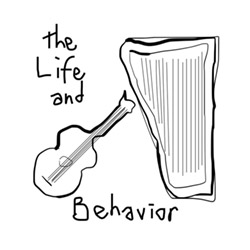





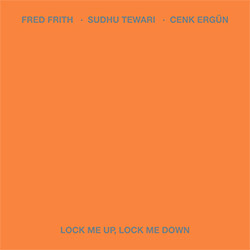
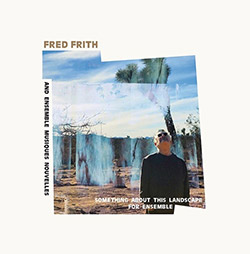
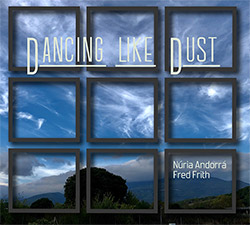


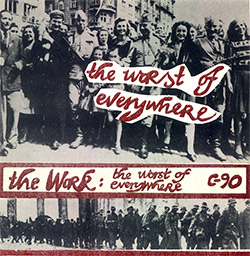
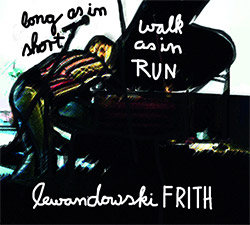
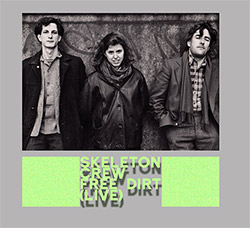
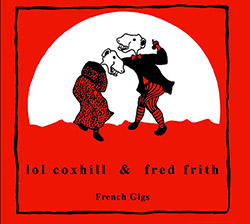
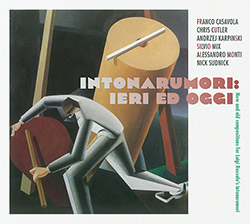

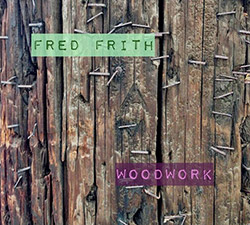

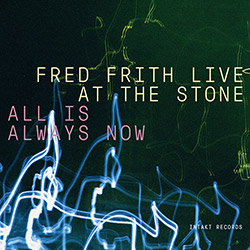



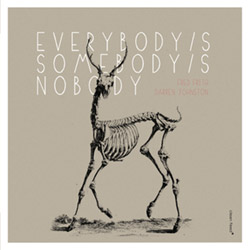






![BlueRing Improvisers: Materia [2 CDs]](https://www.teuthida.com/productImages/misc4/36513.jpg)








![Wheelhouse (Rempis / Adasiewicz / McBride): House And Home [VINYL]](https://www.teuthida.com/productImages/misc4/36462.jpg)
![+DOG+: The Light Of Our Lives [2 CDs]](https://www.teuthida.com/productImages/misc4/36009.jpg)


![Parker, Evan / Jean-Marc Foussat: Insolence [VINYL]](https://www.teuthida.com/productImages/misc4/36398.jpg)










![Deupree, Jerome / Sylvie Courvoisier / Lester St. Louis / Joe Morris: Canyon [2 CDs]](https://www.teuthida.com/productImages/misc4/36404.jpg)



![Eventless Plot | Haarvol: The Subliminal Paths [CASSETTE + DOWNLOAD]](https://www.teuthida.com/productImages/misc4/36232.jpg)










![Eventless Plot | Francesco Covarino: Methexis [CASSETTE + DOWNLOAD]](https://www.teuthida.com/productImages/misc4/36231.jpg)



![Das B (Mazen Kerbaj / Mike Majkowski / Magda Mayas / Tony Buck): Love [VINYL]](https://www.teuthida.com/productImages/misc4/36329.jpg)


![Eternities: Rides Again [CASSETTE]](https://www.teuthida.com/productImages/misc4/36247.jpg)
![Lopez, Francisco: Untitled (2021-2022) [2 CDs]](https://www.teuthida.com/productImages/misc4/36438.jpg)






![Money : Money 2 [2 CDs]](https://www.teuthida.com/productImages/misc4/35894.jpg)




![Klinga, Erik: Elusive Shimmer [VINYL]](https://www.teuthida.com/productImages/misc4/36258.jpg)
![CHANGES TO blind (Phil Zampino): Volume 9 - I Wave on a Fine Vile Mist [CD + DOWNLOAD]](https://www.teuthida.com/productImages/misc4/36061.jpg)

![Wallmart / Rubbish: Asset Protection [split CD]](https://www.teuthida.com/productImages/misc4/35900.jpg)


![+Dog+: The Family Music Book Vol. 5 [2 CDs]](https://www.teuthida.com/productImages/misc4/35897.jpg)
![Kuvveti, Deli : Kuslar Soyledi [CASSETTE w/ DOWNLOAD]](https://www.teuthida.com/productImages/misc4/36107.jpg)

![Brown, Dan / Dan Reynolds: Live At The Grange Hall [unauthorized][CASSETTE]](https://www.teuthida.com/productImages/misc4/36245.jpg)








![Palestine, Charlemagne / Seppe Gebruers: Beyondddddd The Notessssss [VINYL]](https://www.teuthida.com/productImages/misc4/36206.jpg)
![Palestine, Charlemagne / Seppe Gebruers: Beyondddddd The Notessssss [NEON GREEN VINYL]](https://www.teuthida.com/productImages/misc4/36207.jpg)

![Laubrock, Ingrid: Purposing The Air [2 CDs]](https://www.teuthida.com/productImages/misc4/35639.jpg)

![Yoko, Ono / The Great Learning Orchestra: Selected Recordings From Grapefruit [2 CDs]](https://www.teuthida.com/productImages/misc4/35841.jpg)









![Zorn, John / JACK Quartet: The Complete String Quartets [2 CDs]](https://www.teuthida.com/productImages/misc4/35609.jpg)

![Lonsdale, Eden: Dawnings [2 CDs]](https://www.teuthida.com/productImages/misc4/35480.jpg)



![Sorry For Laughing (G. Whitlow / M. Bates / Dave-Id / E. Ka-Spel): Rain Flowers [2 CDS]](https://www.teuthida.com/productImages/misc4/35985.jpg)

![Rolando, Tommaso / Andy Moor : Biscotti [CASSETTE w/ DOWNLOADS]](https://www.teuthida.com/productImages/misc4/36106.jpg)


![Electric Bird Noise / Derek Roddy: 8-10-22 [CD EP]](https://www.teuthida.com/productImages/misc4/35970.jpg)








![Elephant9 : Mythical River [VINYL]](https://www.teuthida.com/productImages/misc4/34624.jpg)


![Elephant9 with Terje Rypdal: Catching Fire [VINYL 2 LPs]](https://www.teuthida.com/productImages/misc4/35355.jpg)
![Deerlady (Obomsawin, Mali / Magdalena Abrego): Greatest Hits [VINYL]](https://www.teuthida.com/productImages/misc4/34876.jpg)







![Staiano, Moe: Away Towards the Light [VINYL + DOWNLOAD]](https://www.teuthida.com/productImages/misc4/35037.jpg)
![Coley, Byron: Dating Tips for Touring Bands [VINYL]](https://www.teuthida.com/productImages/misc4/17906.jpg)

![Lost Kisses: My Life is Sad & Funny [DVD]](https://www.teuthida.com/productImages/misc4/lostKissesDVD.jpg)